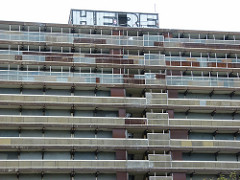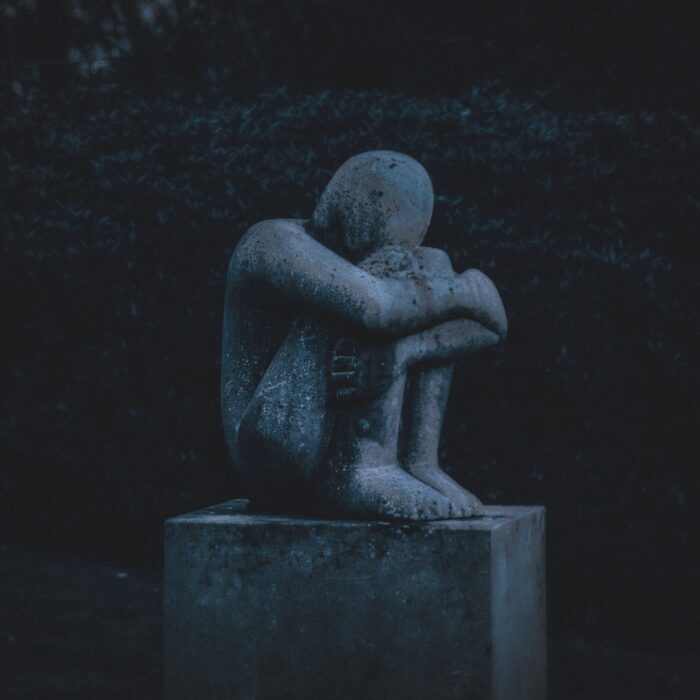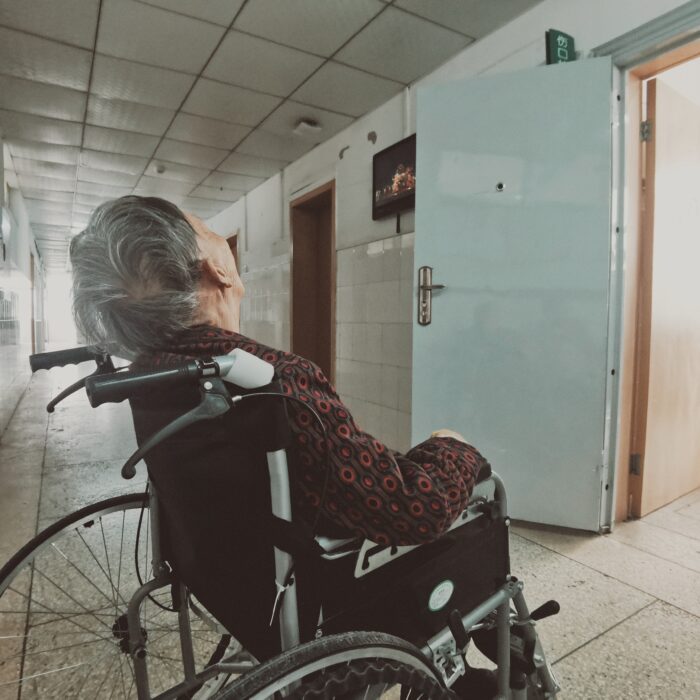You have no items in your cart. Want to get some nice things?
Go shopping
I was used to seeing abandoned buildings around London; every borough seemed to have them. But most were out of reach, wrapped in fencing adorned with threats of CCTV and round-the-clock security. That didn’t stop me from entering a few, however, but it was always at the risk of being collared by some hired hand in a hi-vis or a community officer doing the rounds.
So I couldn’t quite believe it when I saw no such barriers to the blocks of empty council housing that sprawled across a corner of New Cross in south-east London. I had only been living in the area a few days when my housemate mentioned the place, adding that she liked the way the sun glinted off the sheet metal covering the windows and doors of the flats. It was an image that lodged itself in my imagination and sparked off a month-long exploration of the estate.
My first visit was on my way home from work. Autumn was in full swing and a bite in the air accentuated the savage decay that I saw around me. Beside the entrance to the first block, bins were overflowing with clothes and shoes and other possessions. Rotting mattresses were laid out on the grass and rubbish was strewn across a courtyard as if the tenants had suddenly become disgusted with their belongings and made a hasty exit.
I walked gingerly up a flight of steps and into an entrance hall where power lines had been ripped out of a wall casing. Openings led off to rows of five or six flats all sealed up behind metal screens. A number of these had been torn open, however, some easily high enough for a body to pass under. I peered beneath their jagged edges, and glimpsed what looked like traces of an existence; a bag of groceries, a sleeping bag scattered amongst discarded belongings and upended furniture.
I left that evening with a pounding heart and my senses twitching. It seemed too good to be true that I had chanced upon such a vast and open site, just around the corner from my house.
From then on, I made regular visits, systematically exploring the blocks floor by floor. I also scoured the outside of buildings, where former gardens and backyards had been turned into overgrown refuse grounds. A number of screens had been ripped open here too as though some frenzied animal had broken free of its compound. One in particular, had been completely removed and a curtain over a doorway rippled eerily in the breeze. The sight of a pair of shoes lying inside the doorway sent me scurrying back the way I had come.
Soon, I started to see crews working their way round the balconies, flinging handfuls of garbage over the side as they emptied out apartments prior to demolition. The sight of this instilled a sense of urgency in me. I felt as though I were the last visitor to this ravaged, soon to be forgotten piece of civilisation and I didn’t want to miss a thing. I became more brazen in my visits, pushing myself down darkened corridors and dodging past used needles to get into roof-spaces. Revisited spaces became familiar, almost tranquil, as I got to know their mangled shapes and the slightest development, a fresh splintering of glass or a new mound of detritus, was enthralling.
When, at last, I came across someone living on the estate, I thought I had finally pushed my luck too far. I was passing along a balcony when I heard voices from inside one of the flats. Hemmed in by a dead-end, I watched in horror as a figure began to crawl out from beneath a gnarled screen. But it wasn’t the crazed, cave-man like druggie I had imagined must inhabit these spaces. Instead, I was met by a hooded and hatted man of Eastern European origin who seemed less interested in my presence than I was in his, except to discover that I was English and that I had somewhere to live. For him, this was home along with two other men who followed him out. At one point, one of them cut his hand on some glass and politely asked me if I had a tissue. I hadn’t and we carried on talking as we walked down to the street at which point I left, not wanting to tempt fate with another, less congenial encounter.
After that, the buildings started coming down and I made it a near daily ritual to wander past and see what shapes the diggers had moulded out of the crusts of concrete. Other blocks were starting to get barriered off and I dodged in and out of them, like a kid wanting to take one last leap off the diving board before heading home.
Aside from all the grit and atmosphere, what fascinated me was how seamlessly I could pass from a normal, civilised part of society into a lawless zone of chaos and destruction. On the same street, parents walked their children home from school, while across a patch of grass, humans were sleeping in festering spaces and going to the toilet in stairwells. Was anyone concerned? Did anyone even notice? The only other people I came across who showed any interest were a team of Council officers who appeared one day while I was taking pictures of a reflection in a large puddle.
“You’re not from South London, are you?” one of them asked as they checked the flats for squatters.
“Yeah, I live just round the corner.” Then, seeing his bemusement, I added, “I like this kind of thing.”
“Whatever floats your boat,” he replied.
Within a month or so, only one block remained, while the rest of the site had been reduced to a sea of dirt and rubble. A police dog unit had shown up, presumably to deter anyone looking for a last ditch run at some short-term accommodation. However, there was still a side entrance accessible from the main road and I ventured in to take a look. As I turned a corner, a view opened out from a balcony overlooking the rubble where two enormous Rottweilers prowled the space. Before I knew it, one of them had spotted me and with a growl he came lumbering over. I would like to have had the intestinal grit to point my camera over the edge and take a snap of what could have been a truly frightening yet memorable picture. But the thought of unleashing the fury of these two monsters, not to mention attracting the attention of the police officer, meant I hurried back to the high street instead.
Within a couple of days, hoarding had gone up and the building lay empty, or so I thought. From the roadside, I marvelled at the four floors of windows, their panes smashed into varying shapes. While I was there, I caught sight of a solitary woman watching me from a corner window, the last of a tribe about to leave her dwindling habitat. I gave her an awkward smile before turning my camera to the jagged facade in front of me and attempting to capture it as best I could in the fading light.
About alex rankin
Alex is a writer from Bristol, UK. He originally studied journalism but has always had a love for creative writing. He recently undertook a mentorship programme with a surrealist poet, which has encouraged him to look at new ways of writing. His work has appeared in Ellipsis Zine, Flash Fiction Magazine and Reflex Fiction.





One comment